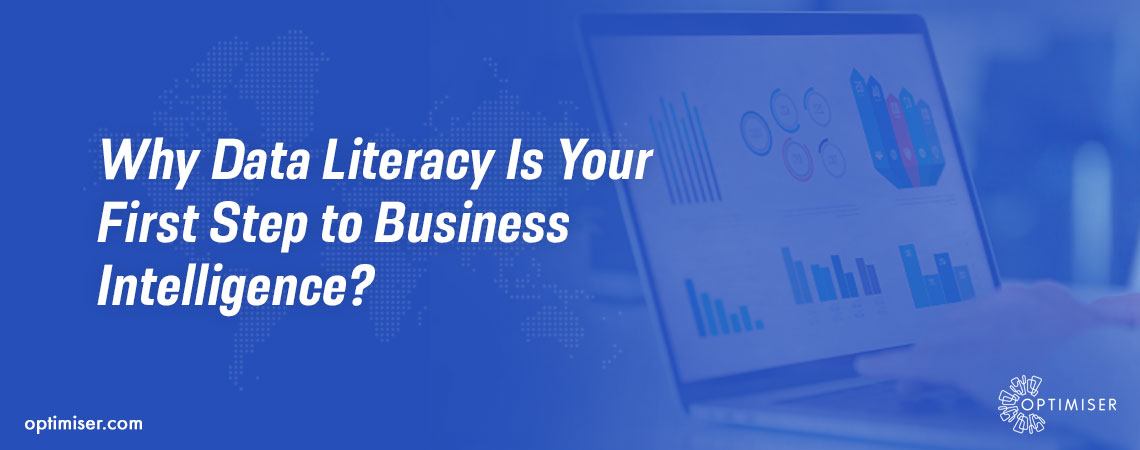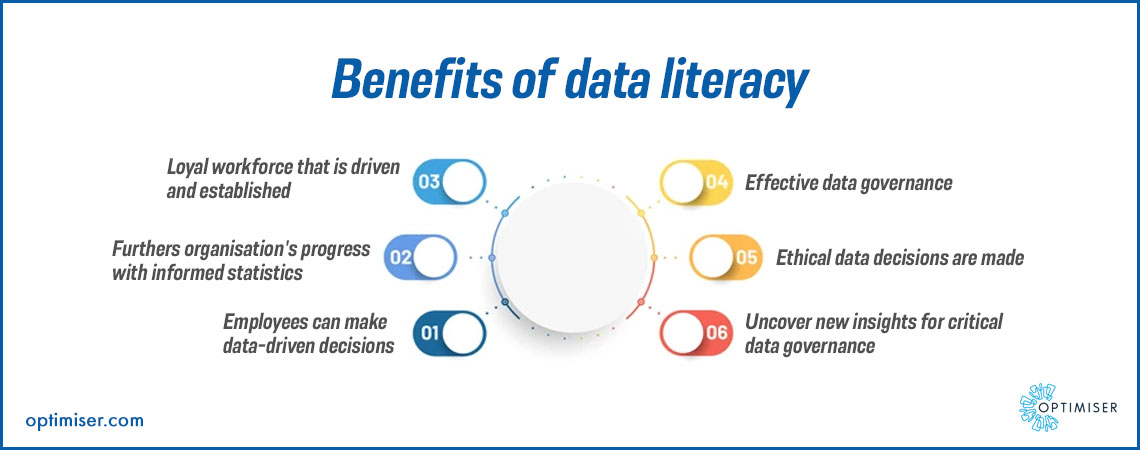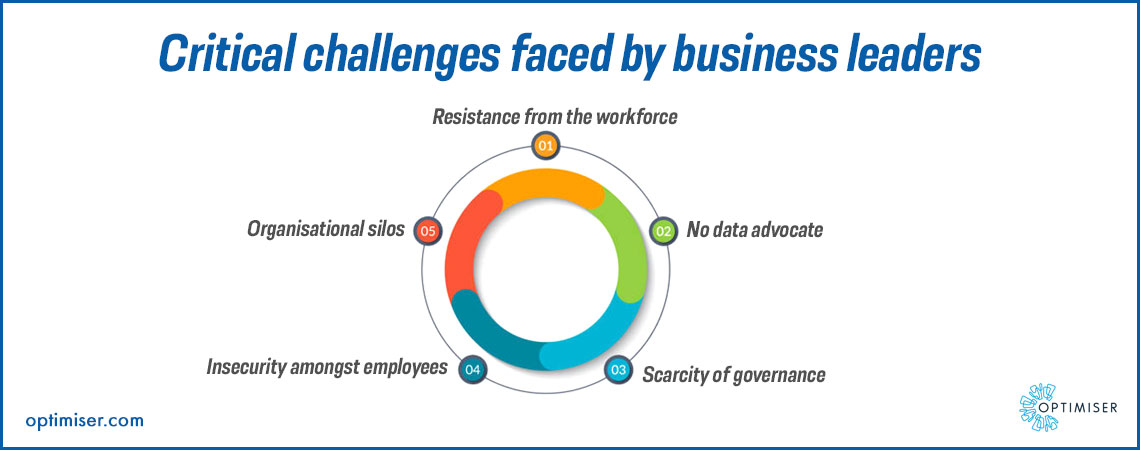
Data Privacy
Why is Data Literacy your First Step to Business Intelligence?
By 2025, there will be a ten-fold increase in worldwide data, as reported by IDC, a global provider of market intelligence. Data officers quantify and communicate the requirements of data literacy training and define and track essential metrics.
Such data-driven organisations will produce data literacy amongst employees to contribute to their assigned roles and help businesses edge over their competitors.
What is Data Literacy?
As per Gartner, Data literacy is the ability to read, write and communicate with data in a context that includes understanding the data sources and their constructs, methods of analysis, techniques applied and describing the use case application and the resulting value.
With a data literacy strategy, employers will build a workforce that is intensely loyal and empowered because of the professional development investment done by the employer.
Furthermore, data literacy is a fundamental element for digital skill: an employee's competence and drive to use current and emerging technologies to drive better business outcomes.

How to assess data literacy at an organisation?
Data and analytics leaders have stressed the responsibility of creating a narrative for data literacy and highlighting the business value that is to be gained from it. Then, how can you assess data literacy in your organisation?
Begin by asking the following questions:
i. How many employees can interpret precise statistical operations such as correlations or judge average?
ii. The number of managers that can create a business case based on concrete, accurate and relevant numbers.
iii. How many managers in your business can illustrate the output of their processes and systems?
iv. If the data scientists the organisation can explain the output of their machine learning algorithms
v. How many customers truly admire and internalise the importance of the data you share with them.
Critical challenges faced by business leaders
Research has pointed out a vast inequality between data-literate people and those who are not. To maintain the competitive advantage offered by data literacy, every employee in the organisation, not just the data scientists, should comprehend data. Only then they will be able to contribute to your business entirely.
Resistance from the workforce
You will face some pushback as large organisations have followed years old traditions. Change is not welcomed by all, and raising awareness about the business's decision to move to a more data-driven culture will take time and persuasion.
No data advocate
Those who are advocates of data-driven culture will need a seat at the decision table in positions such as Chief Analytics Officer (CAO) and Chief Data Officer (CDO). This is because those at the top may oppose change.

Scarcity of governance
There should be the governance of data to ensure that the insights are adequately vetted. This is because while shifting to a data-driven culture, your enterprise will go through unprecedented data production and consumption levels.
Insecurity amongst employees
About 21 percent of 16-24-year-olds consider that they are below average while using data. Businesses can treat this as an opportunity and offer training to young people who are already digital-savvy. This is an added incentive for students to learn more and evolve with the changing trends.
Organisational silos
Data literate employees tend to join Business Intelligence teams or the IT department. For that reason, they are isolated from decision-makers. You will need to establish a platform wherein these employees can share their knowledge to enhance skills throughout the organisation.
Summary
Data literacy gives new insights and much needed practical wisdom on empowering employees. You can leverage the training provided to the employees and make the most of the opportunities that come your way. And this is how your business can build a competitive edge. These full-fledged strategies will transform your business altogether.

30 days free trial. No credit card required
 One powerful platform
One powerful platform
 Simple to use
Simple to use
 Comprehensive
Comprehensive



